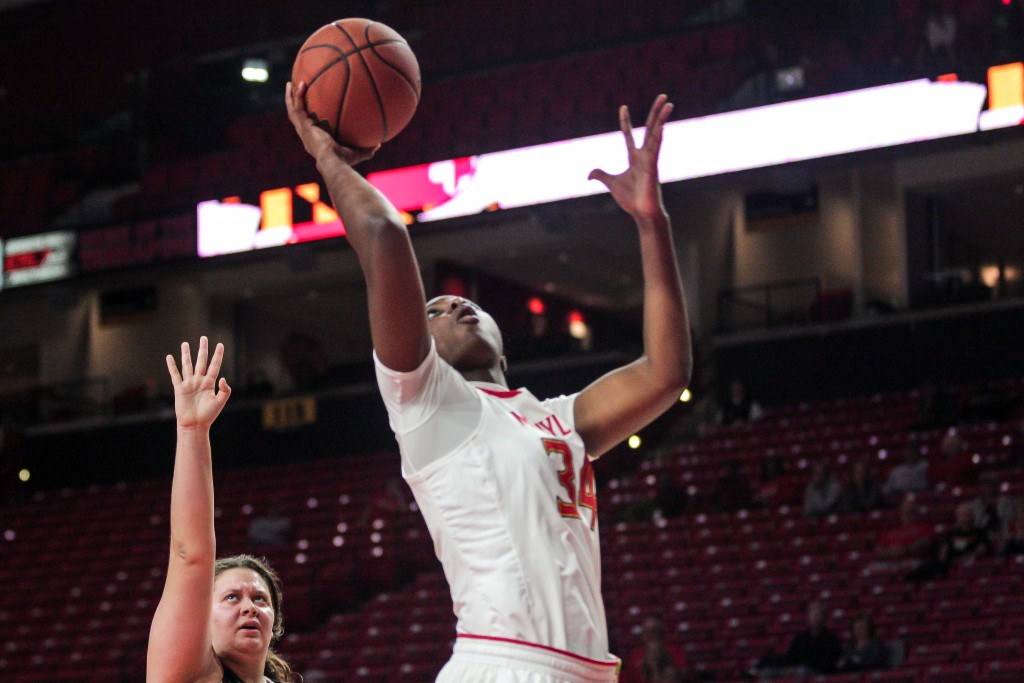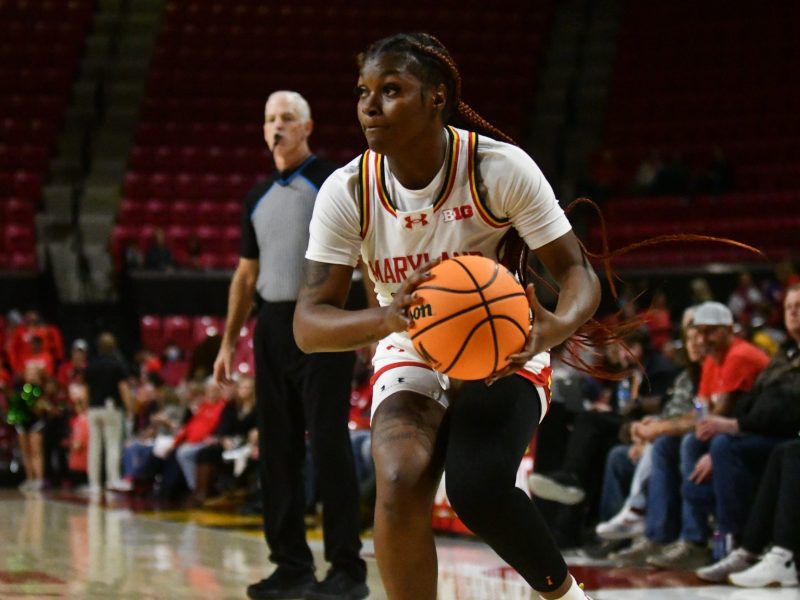Before last weekend’s Big Ten tournament in Indianapolis, the Maryland women’s basketball team stressed the need for its bench to play well and help the starters stay fresh through the three-game, three-day stretch required to win the championship.
“Each person has to make their minutes efficient,” guard Shatori Walker-Kimbrough said. “Every single person on our team is going to matter.”
Despite the reserves’ inconsistent play this season, coach Brenda Frese said she was “optimistic” they would “step up” during the tournament.
The 15th-year head coach’s predication was prescient, as the team’s reserves produced during key moments in all three outings, helping the Terps claim their third consecutive conference tournament title.
“The way everyone played collectively,” Walker-Kimbrough said, “it’s really indescribable.”
[READ MORE: Maryland women’s basketball wins the Big Ten tournament with a 74-64 victory vs. Purdue]
To balance the intensity of the tournament schedule, Frese gave her starters more rest throughout the weekend.
The team’s senior duo of Walker-Kimbrough and center Brionna Jones, which averaged about 30 minutes per conference game in the regular season, received its first break less than five minutes into the team’s first quarter of the tournament.
Guard Ieshia Small and forward Brianna Fraser replaced Walker-Kimbrough and Jones, respectively, and the two reserves contributed against Minnesota.
Fraser played just four minutes before halftime, but the Brooklyn, New York, native scored four points to go with two blocks and an offensive rebound. She also forced a Minnesota player into a travel soon after entering.
In her six first-frame minutes, Small scored six points with a pair of 3-pointers, including one with three seconds left in the first quarter. She also had three assists, a block and a steal.
“Our bench contribution,” Frese said after the 92-80 quarterfinal win, “with Ieshia and Brianna Fraser off the bench, gave us some great minutes.”
That, Frese said, led to more production throughout the weekend.
“Early when they saw how important … in the quarterfinals, how important our bench was going to be,” Frese said, “they were able to see how valuable they were.”
Fraser scored four more points in the first half of Saturday’s semifinal game against Michigan State, but perhaps the bigger surprise was guard Sarah Myers’ play.
Starting point guard Destiny Slocum leads the team in playing time by about three minutes during league play, but with about five minutes left before halftime Saturday, she dribbled the ball off her knee and committed a foul trying to recover it.
Frese switched her with Myers, a freshman who played the second-fewest conference minutes on the team this season, and only played in 11 of 16 Big Ten games.
With Michigan State trailing by just three points, Myers played at the top of the Terps’ zone defense, tasked with helping stop the Spartans’ dangerous guards. After Jones tipped a pass into a series of deflections, Myers corralled it and charged the other direction, dishing a bounce pass to Walker-Kimbrough on the fast-break for an assist and a five-point lead.
She picked up another assist — this one to Jones — the next time down the floor, and played the rest of the half, almost matching her conference average of 5.1 minutes per game and drawing praise from Frese after the 100-89 victory.
During Purdue’s championship threats on Sunday, meanwhile, Fraser scored seven points in Sunday’s 74-64 championship win over Purdue, while forward Stephanie Jones pitched in six.
“Shatori told the team as we came in here that it was going to be the team with the best bench and depth in three days,” Frese said.
The seniors speaking up before the tournament helped motivate the bench, Frese said, and they were part of why she believed the reserves would succeed.
“They’ve been fighting all year,” Frese said. “I know the character in our locker room and how we play for each other.”



